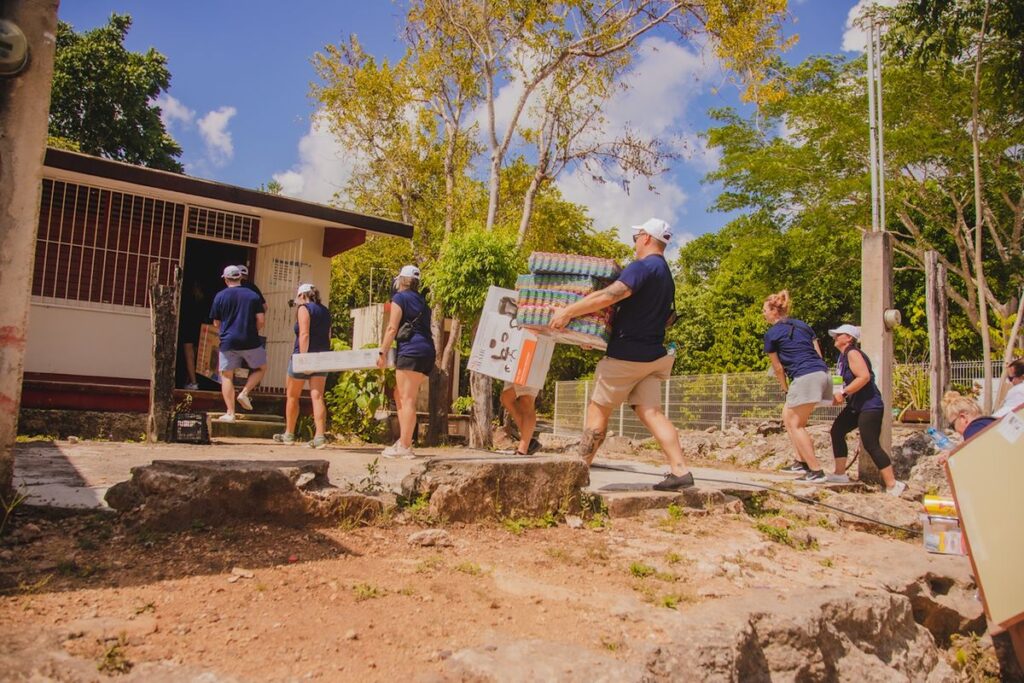
In what ways will the travel industry evolve by 2030?
The answers from advisors were wide-ranging, with some very optimistic about the future while others were a bit more skeptical.
Here’s what they had to say about client and supplier relationships, and the role Artificial Intelligence (AI) will play in the travel industry going forward.
Travel Advisor and Client Relationships
“By 2030, travel advisors will act more like long-term travel strategists than transactional planners,” said McLean Robbins of Lily Pond Luxury, a Travel Experts affiliate.
“We’ll guide clients through every stage of their lives—from honeymoons to multigenerational getaways—offering a deeply personalized, high-touch approach that no algorithm can replicate. With the world increasingly automated, clients will value what’s proven human: nuanced advice, creative thinking, and trusted relationships.”
Robbins added that clients are already treating advisors as what she termed “lifestyle partners.”
“In some cases, travel is being managed alongside personal finance and wellness by family offices or private client services. Advisors who offer that same concierge-level continuity will thrive,” she said.
Sarah Kline of Time For Travel is of a similar mind. “I think our role will become more about providing real value and personalization—all seamlessly delivered,” she said.
For her part, Pam Walker of Walker Adventures, an affiliate of Travel Experts, does not envision the industry changing in any significant way. “I have a client that started with me when his kids were 2 and 3 years old,” she said.
Now, Walker is booking honeymoon trips for one of the children and continues to work with the father as well. “I think good relationships prove loyalty,” she said.
Not all advisors were as positive about what’s in store for the industry in five years. “It will become more saturated with travel advisors due to a lack of required certification and proper training,” said Kim Schott of Adventures Beyond Borders, a Travel Experts affiliate.
“Advisors will need to work harder to continue retaining their clients due to increased competition from a larger number of agents,” she said. “It could also affect the number of clients who choose to use an agent. As more and more clients receive misinformation from these ‘travel professionals,’ it could decrease the credibility of our profession.”
Schott added: “As more and more clients receive misinformation from these travel professionals, this could decrease the credibility of our profession.”
In terms of travel trends, Time For Travel’s Kline believes an ever-growing number of travelers will be looking for purpose-driven, health-conscious trips, including retreats, digital detoxes and volunteering. “Also, lesser-known spots will grow as overtourism pressures popular places,” she said.

Immersive vacations will continue to rise in popularity. (Source: Courtesy G Adventures)
Travel Advisor and Supplier Relationships
In the view of Lily Pond Luxury’s Robbins, supplier relationships will “become more dynamic, built on collaboration and customization rather than just commission,” she said. “And travel itself will shift toward smaller-scale, deeper experiences—private charters, immersive touring, and smart, meaningful itineraries.”
By contrast, Andrea Norfolk of Shoreline Destinations believes one of the most significant challenges facing the advisor community will be “increased pressure from suppliers to book direct—something she is already witnessing—with exclusive amenities provided to clients who book direct, and loyalty programs that reward direct bookings but exclude those made through third parties such as tour operators.”
This phenomenon, she said, “is especially prevalent with single-destination, all-inclusive or resort-only trips, where the hotel controls the full guest experience and doesn’t need to rely on third-party packaging to fill inventory.”
While Norfolk said she understands why direct booking pushes are valuable to suppliers from a revenue standpoint, “they present a long-term risk to advisor relationships, especially when loyalty and incentive structures provide the agent with very little choice on who and how they want to book a client’s trip.”
Artificial Intelligence
Time For Travel’s Kline believes that AI very well may provide advisors with a competitive edge going forward. “The busy traveler will be overwhelmed with AI and want to lean on more personal experiences,” she said. “Building trusted, flexible and human connections will be the ultimate competitive edge in a world where AI handles the basics.”
While AI can offer suggestions, said Shoreline Destinations’ Norfolk, “it can’t replicate lived experience; whether it’s a unique experience on property that may not be publicized for people to find it online to finding a street vendor that offers the most delicious local cuisine, there will always be a want for that first-hand information.”
In the final analysis, although AI has arguably made travel research more accessible to clients, “convenience doesn’t equal confidence,” according to Norfolk.
“When the foundation of trust is already in place, clients will continue to rely on their advisor not just for bookings, but for expertise, guidance and peace of mind,” she concluded.
For the latest travel news, updates and deals, subscribe to the daily TravelPulse newsletter.

